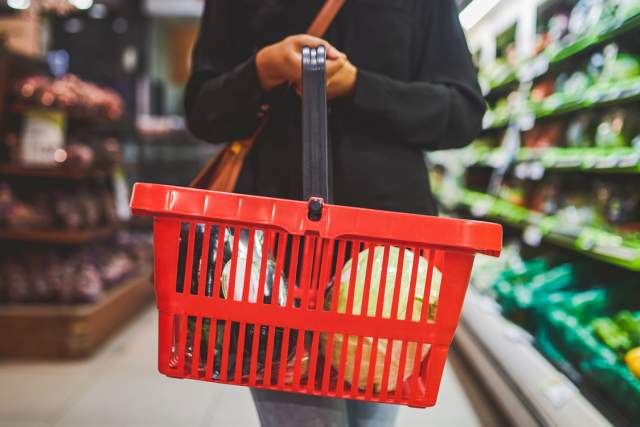As health officials in the United States race to administer COVID-19 vaccines as quickly as possible, a troubling trend is emerging in the demographics of distribution. The counties across the country with the lowest rates of vaccinations are those that voted strongly in favor of Donald Trump in 2020. It’s not because the vaccine is unavailable in those places; two recent surveys from Monmouth University and Quinnipiac University found that nearly half of Republicans had no intent to get inoculated, compared to just 20 percent of Democrats. Scientists estimate that 70 to 90 percent of the U.S. population must be fully vaccinated to obtain herd immunity, a number that will be hard to reach if vaccine hesitancy even mildly lines up with political affiliations in this deeply divided nation.
More than a year ago, Tuck professor Ellie Kyung and colleagues Manoj Thomas of Cornell and Aradhna Krishna of the University of Michigan sensed the beginnings of this problem. Just a few days after the World Health Organization declared COVID-19 a pandemic, national polls showed that about 60 percent of Republican voters weren’t concerned that the coronavirus would disrupt their lives, while roughly two-thirds of Democrats said the opposite. Former President Trump fed into Republicans’ blasé attitudes about the virus. On March 24, 2020, for example, when 10 states had just issued stay-at-home orders, Trump said on Fox News that “we’ve never closed down the country for the flu. So you say to yourself, what is this all about?”
For Kyung, who studies the effects of language on perceptions and behavior, the rhetoric and beliefs of conservatives presented an interesting paradox. Research has long shown that Republicans are more threat-sensitive than Democrats, so why were Republicans seemingly dismissing a deadly, fast-spreading virus?
If you ask a question in a way that provokes someone’s identity, you’re going to get layered into their response their attempts to mitigate that threat you’ve posed to their identity, as opposed to just trying to understand what they might think the threat will be.
Seizing this novel research opportunity, Kyung, Thomas, and Krishna conducted two surveys in late March and early April of 2020 to study the effects of political identity on risk perceptions. In their ensuing working paper, “How Political Identity Influences Covid-19 Risk Perceptions: Divergent Judgments of Group and Individual Risk,” they find that conservatives hold two seemingly contradictory beliefs about coronavirus risks. Their perceptions of group risk are markedly different from their perceptions of individual risks. When asked about the national group risk from COVID-19, their estimates were lower than those of liberals. However, when asked about their individual risk of death from the virus, their estimates were higher than those of liberals.
What causes such irrational risk perceptions? The authors suggest that “these divergent judgments of group and individual risk can stem from two key factors related to their political identity: 1) explicit ideological messages from the leader and 2) implicit ideological values that capture the influence of deep-seated moral values that can operate outside of explicit awareness…”
In the first study, which was conducted with a national sample on March 24, 2020 through Amazon’s Mechanical Turk, the authors probed the effect of explicit ideological messages from Trump that protecting the economy should be prioritized over individual health, and how those messages impacted respondents’ perception of their own risk from the coronavirus. The survey asked participants about their individual risk-alleviating behaviors (e.g., hand washing, disinfecting surfaces), group risk-alleviating behaviors (e.g., social distancing, support of lockdowns), group risk estimates (the number of people who would get the coronavirus, and the number of people who would die from it), individual risk estimates (the likelihood they would die from the coronavirus, and the likelihood the average American would die from it), and whether it was more important to protect individuals from harm from the coronavirus versus protecting the nation from an economic downturn due to the coronavirus. An analysis of the survey responses uncovered a divergence of risk perception depending on people’s political orientation. Conservatives, relative to liberals, underestimated the group risk at the national level for contracting COVID-19. However, quite paradoxically, they estimated higher individual risk of dying from COVID-19. Similarly, increasing conservatism was associated with decreased support for group risk-alleviating behaviors and greater support for individual risk-alleviating behaviors to prevent getting the virus.
We need to get away from framing public health risks in a way that threatens people’s identity with a political group. If we all get the vaccine, it will protect the economy and individuals. That’s the messaging we should be getting out there.
The second study was conducted on April 7, 2020, three days after President Trump said: “I started by saying that and I continue to say it. The cure cannot be worse than the problem itself. We’ve got to get our country open.” In this study, the researchers simultaneously considered the role of explicit ideological messages and implicit ideological values in driving risk perceptions. To do this, they invoke moral foundations theory, which suggests that there are five foundations of intuitive ethics: care/harm, fairness/cheating, loyalty/betrayal, authority/subversion, and sanctity/degradation. The first two are recognized as “individualizing values” and more associated with liberals. The other three are “binding values” and more associated with conservatives. “These binding values focus on the group as the ‘locus of moral value,’” they write, which “…would evoke the natural inclination to protect the group at the expense of the self.”
In addition, implicit ideological (binding) values played a larger role in mediating this effect than explicitly stated beliefs in ideological messages (belief in protecting the economy). The survey questions this time were nearly the same as the first study, except respondents were asked about additional group-risk alleviating behaviors (such as mask wearing) and to rate 16 items on their importance for judging right from wrong, which measured their adherence to binding values. As in the first study, the authors found a divergence in risk perceptions: conservatives perceived a lower group risk and a higher individual risk relative to their liberal counterparts. In addition, implicit ideological values played a larger role in mediating this effect than respondents’ answers than explicit beliefs about explicit ideological messages.
For Kyung, this study highlights three important points about understanding and shaping human behavior. First, the way you frame a risk to someone can affect their perception of it. In this case, conservatives perceived the coronavirus risk differently, depending on if it was framed as a risk to a group or to themselves individually. Second, “you need to be careful how you ask questions when you’re trying to understand someone’s behavior,” Kyung says. “If you ask a question in a way that provokes someone’s identity, you’re going to get layered into their response their attempts to mitigate that threat you’ve posed to their identity, as opposed to just trying to understand what they might think the threat will be.” Finally, the study showed the outsized influence of implicit reactions in driving risk perceptions and behavior. “We need to be aware of that when we’re dealing with issues that can cross over into politics,” Kyung says. “If we know what’s driving behavior, at a fundamental level, it leads to better policymaking.”
Where does that leave the U.S. in its quest to eradicate COVID-19? “We need to get away from framing public health risks in a way that threatens people’s identity with a political group,” Kyung argues. “If we all get the vaccine, it will protect the economy and individuals. That’s the messaging we should be getting out there.”

